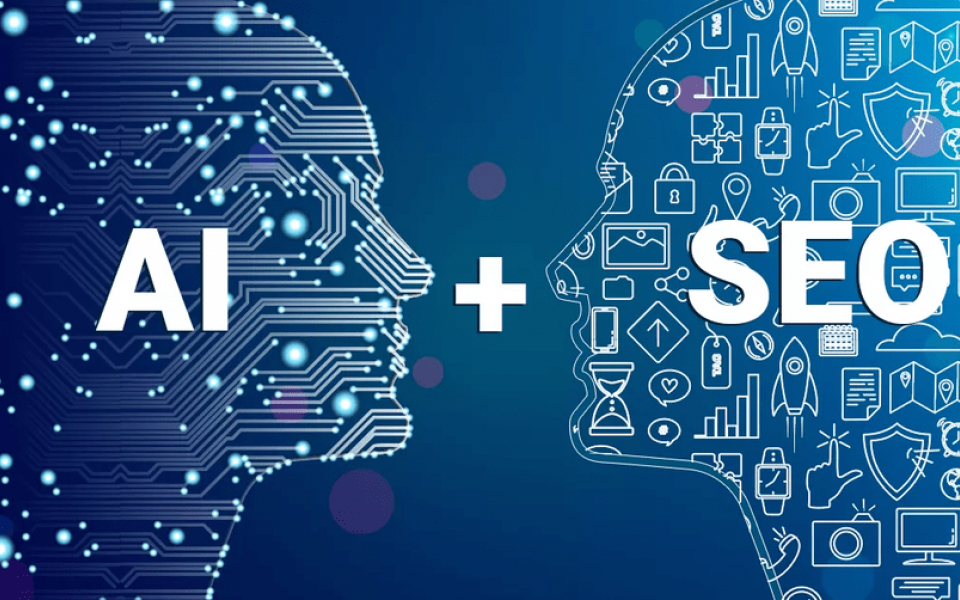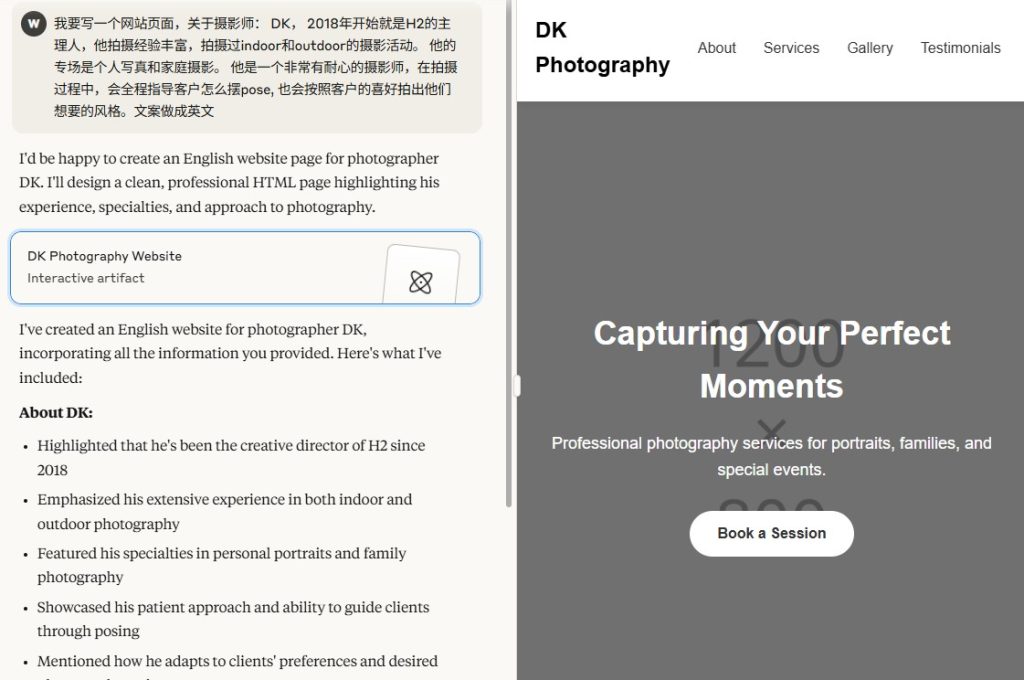In today’s digital landscape, where technological advancements are reshaping various industries, the role of artificial intelligence (AI) in content creation has garnered significant attention. Content creation is a cornerstone of effective Search Engine Optimization (SEO), and the integration of AI-written content into SEO strategies has sparked a heated debate, raising questions about its effectiveness, particularly in terms of SEO.
In this article, we’ll delve into the topic and explore the pros and cons of AI-written content and whether it is suitable for SEO, as well as provide insights into how it can impact your digital presence.
The Rise of AI in Content Creation
AI, powered by machine learning algorithms, has made impressive strides in generating human-like text. With platforms like OpenAI’s GPT-3, AI can create coherent, contextually relevant, and linguistically sound content. This has led to its adoption in digital marketing in various content-related tasks, including drafting articles, product descriptions, email templates, and more.
The SEO Perspective: Advantages and Concerns
Advantages of AI-Written Content for SEO
1. Efficiency and Scalability
AI-generated content can rapidly produce large volumes of text, saving valuable time for content creators. This scalability is particularly useful for websites requiring frequent updates or extensive content needs.
2. Keyword Integration
AI algorithms can analyse keyword trends and seamlessly integrate them into content. This assists in creating SEO-friendly content that aligns with users’ search queries.
3. Data-Driven Content
AI excels at generating data-driven content, such as product specifications, statistics, and reports. This ensures accuracy and consistency, which are vital for SEO credibility.
4. Localisation and Personalisation
AI can tailor content to specific regions or audience segments, improving relevance and engagement. Localised content can boost SEO rankings in specific geographic areas.
5. A/B Testing and Experimentation
AI can assist in A/B testing different content versions, headlines, or meta descriptions to determine which variations perform best in terms of user engagement and SEO metrics.
Concerns and Challenges of AI-Written Content for SEO
1. Quality and Authenticity
One of the primary concerns with AI-generated content is maintaining quality and authenticity. Content lacking a human touch might read as mechanical or missing depth, potentially leading to user disengagement.
2. Duplicate and Thin Content
AI-generated content could inadvertently lead to duplicate or thin content issues, negatively affecting SEO rankings. Search engines prioritise original and valuable content for users.
3. User Engagement and Trust
AI-generated content might struggle to evoke the same emotional connection and engagement that human-generated content can achieve. Authentic storytelling and relatability are often better accomplished by human writers.
4. Google’s Algorithm Updates
Search engines like Google frequently update their algorithms to provide users with the best possible results. If AI-generated content is not aligned with these updates, it might lead to ranking fluctuations.
5. Penalties and Manipulation
Using AI-generated content purely for SEO manipulation, without providing value to users, can lead to penalties from search engines. Google’s emphasis is on content that serves users’ needs.
Google’s Standpoint on AI and SEO
Google’s primary objective is to deliver the best possible user experience by providing relevant and valuable content in search results. In a statement by Google’s spokesperson, the company reiterates that content should be created for users, not search engines. This underscores the importance of producing content that addresses user needs, answers their queries, and adds genuine value.
Striking the Right Balance
AI-generated content offers speed and efficiency, but there are concerns about its impact on SEO. Can you harness the power of AI content without risking your site’s SEO? Absolutely! To leverage AI-written content effectively for SEO and content marketing strategy, it’s essential to strike a balance between automation and authenticity. Let’s explore strategies for integrating AI-written content into your website while safeguarding your SEO efforts.
1. Supplement, Don’t Replace
The key to maintaining a healthy balance between AI-generated and human-created content is to use AI content as a supplement rather than a replacement. AI excels at quickly producing large volumes of content, but it may lack the creativity and nuance of human writing. Reserve AI for generating repetitive or data-driven content, allowing your human writers to focus on in-depth articles, thought leadership pieces, and engaging narratives.
2. Prioritise Quality and Relevance
While AI can generate content swiftly, the quality and relevance of the material are crucial for SEO success. Ensure that the AI-generated content aligns with your brand voice, provides accurate information, and addresses the needs of your target audience. Don’t compromise on quality just for the sake of quantity.
3. Optimise for Keywords and Intent
AI can analyse keyword trends and seamlessly integrate them into content. However, be cautious not to overstuff content with keywords. Focus on creating content that serves the user’s intent and provides value. This approach not only improves SEO but also enhances user experience, leading to higher engagement metrics.
4. Edit and Refine AI-Written Content
AI-written content might lack the human touch, so allocate time for editing and refining. Human writers can add depth, emotional resonance, and authenticity to the content. This editing process helps ensure the content aligns with your brand’s tone, style, and messaging.
5. Prioritise User Experience
Google’s algorithms are designed to prioritise user experience. Whether AI or humans generate the content, it should serve the user’s needs. Create content that informs, educates, entertains, or solves problems. Content that resonates with users is more likely to be shared, linked to, and positively impact your SEO efforts.
6. Use AI for Data-Driven Content
AI excels in handling data-driven content, such as product descriptions, statistical analyses, and reports. These types of content require accuracy and consistency, which AI can provide. Utilise AI for creating such content, freeing up your human writers for more creative and strategic tasks.
7. Test and Monitor
As you integrate AI-generated content into your website, closely monitor its performance. Track engagement metrics, user feedback, and SEO rankings. Adjust your strategy based on the data you gather. If you notice that AI content is not resonating with your audience or is negatively impacting SEO, be prepared to make necessary adjustments.
8. Avoid Duplicate Content
One major concern with AI-generated content is the potential for duplicate content, which can harm SEO rankings. Ensure that the AI-generated content is unique and adds value. Avoid using AI to generate content that’s essentially the same as existing pages on your site.
9. Provide Attribution
If you do use AI-generated content, consider providing attribution for transparency. This informs your audience that the content was created with the assistance of AI technology. Transparency can foster trust with your audience.
10. Stay Updated with SEO Trends
The field of SEO is constantly evolving. Stay informed about the latest SEO and digital marketing trends, algorithm updates, and best practices. This knowledge will help you adapt your AI content strategy to align with current SEO guidelines.
Incorporating AI-generated content into your website can be a powerful asset, but it requires a strategic approach. By prioritising quality, relevance, and user experience, you can leverage AI technology while safeguarding your site’s SEO performance. Remember, while AI is a tool, human creativity and expertise remain indispensable in crafting content that truly resonates with your audience.
The Bottom Line
In the ever-evolving landscape of SEO, AI-written content has emerged as a game-changer. Its efficiency, scalability, and keyword integration capabilities offer distinct advantages. However, the challenges of maintaining quality, originality, and user engagement cannot be overlooked.
Remember that user satisfaction is paramount when integrating AI-written content into your SEO strategy. Google’s algorithms are designed to reward content that enriches the user experience, and this should guide your approach. By striking the right balance between AI assistance and human creativity, you can harness the power of AI-written content to enhance your SEO efforts and maintain a robust digital presence.
Relying fully on AI for your content marketing is not the best approach. If you think you don’t have the right expertise or time for the same, it is highly recommended to engage a digital marketing agency to manage it for you. With their experience and knowledge, you can be sure your content, as well as SEO, is always on point.








